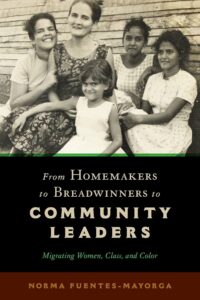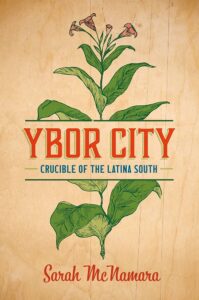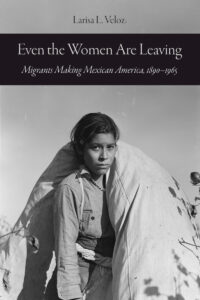We continue to celebrate National Hispanic Heritage Month (Sept. 15 – Oct. 15), which commemorates the important contributions of the over 60 million Americans who trace their roots to Mexico, Central America, South America, and the Spanish-speaking islands of the Caribbean and Spain.
Our second blog post here highlights recent books published by university presses – literature dealing with the history of Hispanic/Latinx Americans in the United States, especially women, found in the Emory Libraries collections.
 “From Homemakers to Breadwinners to Community Leaders: Migrating Women, Class, and Color” by Norma Fuentes-Mayorga
“From Homemakers to Breadwinners to Community Leaders: Migrating Women, Class, and Color” by Norma Fuentes-Mayorga
A recent Rutgers University Press book comparing the integration and immigration experiences of Mexican and Dominican women in New York City.
“Making the MexiRican City: Migration, Placemaking, and Activism in Grand Rapids, Michigan” by Delia M. Fernández
A book published by the University of Illinois Press describing the immigration, political activity, and social situation of Tejano, Mexican and Puerto Rican peoples to Grand Rapids, Michigan after 1950.
 “Ybor City: Crucible of the Latina South” by Sarah McNamara
“Ybor City: Crucible of the Latina South” by Sarah McNamara
The author presents the story of Cuban immigrants, particularly women, to Ybor City located near Tampa, Florida, and their economic, political, and social struggles in the Jim Crow South in early 20th century.
“Border Bodies: Racialized Sexuality, Sexual Capital, and Violence in the Nineteenth-Century Borderlands” by Bernadine Marie Hernández
This book reveals “how sex, violence, and capital conspired to govern not only women’s bodies but their role” in the late 19th century borderlands of the southwestern United States and Mexico.
 “Even the Women are Leaving : Migrants Making Mexican America, 1890-1965” by Larisa Veloz
“Even the Women are Leaving : Migrants Making Mexican America, 1890-1965” by Larisa Veloz
A recent University of California Press book tracing bidirectional migration across the Mexico-US border from 1890 to 1965 that concentrates on the experiences of Mexican women and families.
—by Phil MacLeod, Latin American Studies librarian
